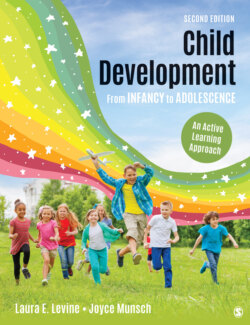Читать книгу Child Development From Infancy to Adolescence - Laura E. Levine - Страница 186
На сайте Литреса книга снята с продажи.
Ethical Considerations in Genetic Testing
ОглавлениеIn Chapter 2, you read about Henrietta Lacks, whose genetic information was used without her knowledge or consent. Issues of privacy and the use of results from genetic screening raise many ethical questions, particularly when children are the subjects. The AAP Committee on Bioethics (2013) recommends that genetic testing should always be motivated by the best interests of the child and should be carried out by a professional genetic counselor. Both parent and child, when appropriate, should be informed about the testing and should agree to it. The risks should be discussed with the family, including the possibility that genetic testing could uncover misattributed paternity or adoption, and a plan about disclosure or nondisclosure should be in place before testing.
There is much to be gained from genetic research and testing, but we should proceed carefully to avoid harm, especially to children. Keeping this in mind, there are several ways an individual can take a preliminary look at his or her own genetic vulnerabilities. Some are discussed in Active Learning: Assessing Genetic Risk. Remember that none of these tests are definitive and if you discover something of concern, it is best to consult with your doctor.
Active Learning: Assessing Genetic Risk
Knowing which genetic conditions affect your family members will make you aware of your own possible genetic vulnerabilities. To begin assessing your genetic risk, you can simply collect information about conditions that have affected your blood relatives that have been shown to have some genetic basis. These include cancer, diabetes, heart disease, mental illness, stroke, and learning problems.
The National Society of Genetic Counselors (n.d.) has a more complete list at http://www.aboutgeneticcounselors.com. On their home page pull down the menu for FAQs+Resources and click on Family History Resources, where you will find a list of conditions that have a genetic component. For each of the conditions, record the age at which the condition appeared in each of your relatives. The likelihood of developing these conditions increases with age, so you will need to update this information periodically. Because health issues can be a sensitive subject and some family members may be reluctant to share information, be careful about how you approach them. Another way to compile this information is to use the website set up by the U.S. Surgeon General at https://familyhistory.hhs.gov to record and save this information online.
You may have heard of commercial genetic tests that promise to help you assess your genetic risk of developing certain diseases or conditions, or of determining your genetic ancestry. For these tests, you purchase a testing kit online, provide the company with a saliva sample or a swab from the inside of your cheek, and receive a report that outlines your individual genetic risks (often expressed as “high,” “low,” or “average”) for a variety of possible disorders or characteristics, as well as some strategies that can help reduce the risk. However, currently the Centers for Disease Control recommend that you only take these tests on the advice of a doctor and in a medical setting. Out of 1,000 such tests, only 12 have been approved by the U.S. Food and Drug Administration (FDA) and only one, 23andme, has been approved as a self-administered home test (Hatfield, 2016; USFDA, 2017c). Home testing for children is strongly discouraged by the AAP Committee on Bioethics (2013). You can see why the use of such tests by well-meaning parents who do not have the expertise to fully understand them could lead to negative outcomes for the children.
